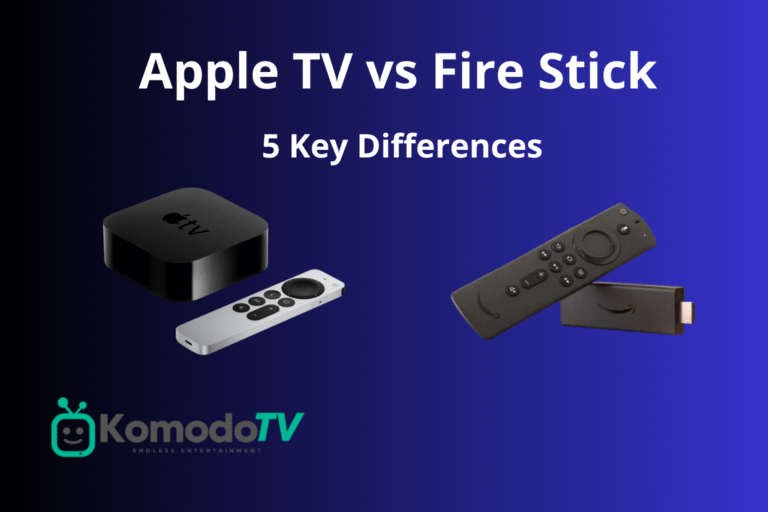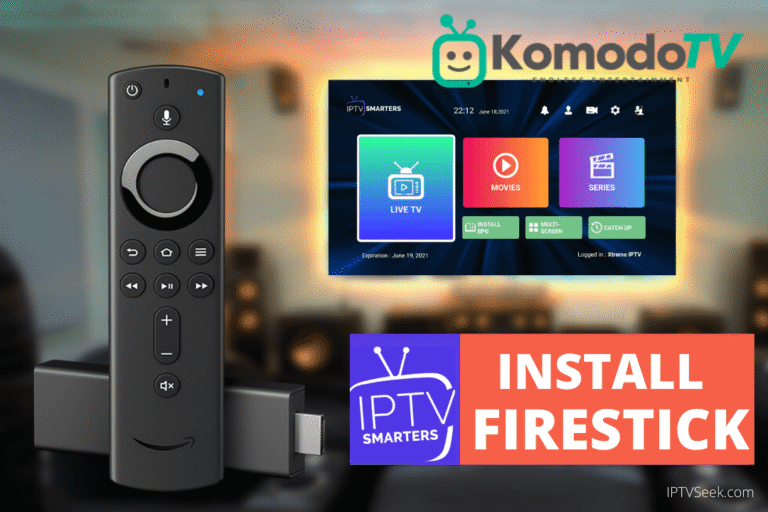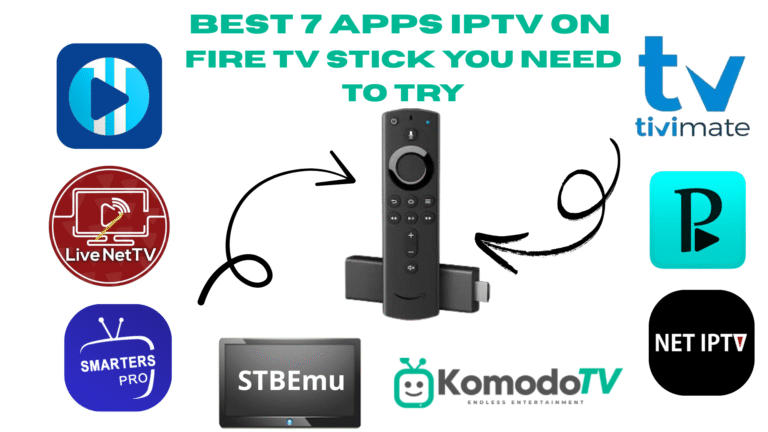Table of Contents
IPTV encoders are key for delivering top-notch video content. They are vital for live and video streaming. I’ll show you the best IPTV encoders for 2025, highlighting their features and benefits.

A sleek and modern IPTV encoder set against a minimalist, tech-inspired backdrop. In the foreground, the device is prominently displayed, its clean lines and metallic finish reflecting the precision engineering within. The midground features a subtly-patterned surface, evoking the flow of digital data, while the background is a gradient of cool, complementary hues, creating a sense of depth and sophistication. Soft, directional lighting accentuates the encoder’s form, casting subtle shadows that add depth and dimension. The overall composition conveys the advanced, cutting-edge nature of this essential IPTV technology.
When picking a live streaming encoder, look at video quality, compatibility, and cost. This article aims to guide you on the best IPTV and video streaming encoders. It’s all about finding the right setup for you.
Introduction to IPTV Encoders
IPTV encoders are crucial for quality and compatibility. A good encoder should offer high-quality video. It should also work well with many devices and platforms.
Key Takeaways
- Understanding the importance of iptv encoders in video streaming
- Key factors to consider when choosing a live streaming encoder
- Overview of the top iptv encoder picks for 2025
- Importance of video quality and compatibility in iptv encoders
- Education on the best options available for video streaming setup
- Focusing on iptv encoder and video streaming encoder solutions
Understanding IPTV Encoder Technology in 2025
Exploring IPTV encoders, we see how encoding software boosts streaming quality. A broadcast encoder turns video into digital format, reaching many viewers. Today’s IPTV encoders are better, offering clearer video and less delay.
With new tech, IPTV encoding has evolved. Now, we have different digital video encoders, like hardware and software. These are used in broadcasting, streaming, and making videos. Let’s look at what makes modern encoders great:
- Advanced compression algorithms
- High-performance processing
- Real-time encoding capabilities
Using top-notch encoding software, creators can give viewers a smooth experience. As people want better video, the role of broadcast encoders and digital video encoders will grow.
Breaking Down the Latest IPTV Encoder Features
IPTV encoding is all about the latest features and tech for top-notch video. The h.264 encoder and h.265 encoder are key players, each with its own benefits. The h.265 encoder is a winner for better compression, which means less bandwidth and better video.
The encoder type matters too. A hardware encoder is faster and uses less power than software ones. This is great for big IPTV setups where speed and efficiency are key.
Here are some important encoder features to look for:
- Support for h.264 and h.265 encoding standards
- Fast hardware encoder for efficient video processing
- Features like AI and machine learning for better video and less delay
Knowing the latest in IPTV encoder tech helps content providers choose the best. This ensures top video quality and a great user experience.
Hardware vs Software IPTV Encoders: The Current Landscape
Choosing between hardware and software IPTV encoders can be tough. With more people using IPTV services like komodoiptv and komodotv, finding the right encoding solution is key. It’s important to know what’s available for the best iptv service.
Premium Hardware Encoder Solutions
Premium hardware encoders are top-notch for video encoding. They’re often used in professional settings. These encoders perform well, are reliable, and work with many devices.
Software-Based Encoding Platforms
Software-based encoders are flexible and scalable. They’re great for smaller operations or those on a budget. These platforms are easy to integrate and offer a cost-effective way to encode IPTV.
Hybrid Encoding Systems
Hybrid systems mix the best of hardware and software encoders. They offer quality video encoding, flexibility, and scalability. This makes them a good choice for those looking for the best iptv service.
In conclusion, the choice between hardware and software IPTV encoders depends on your needs. Think about cost, performance, and compatibility. This way, you can pick the best iptv service for you, whether it’s komodoiptv or komodotv.
H.264 vs H.265: Choosing the Right Encoding Standard
Choosing the right encoding standard is key for high-quality video content. H.264 and H.265 are two popular options. The right choice depends on your use case, like live streaming or video-on-demand.
H.265 has better compression and uses less bandwidth than H.264. It’s great for places where bandwidth is tight. But, H.264 is more widely supported. So, it’s better when you need to ensure compatibility. When picking an iptv encoder, think about your needs and choose the right standard.
When deciding between H.264 and H.265, consider a few things:
- Bandwidth requirements
- Compatibility with devices and platforms
- Video quality and resolution
- Encoding complexity and processing power

A sleek and modern IPTV encoder stands amidst a dimly lit industrial setting. Warm lighting casts a soft glow, illuminating the device’s clean, metallic lines and compact, minimalist design. In the background, a blurred cityscape stretches out, hinting at the encoder’s role in facilitating the distribution of digital content. The scene conveys a sense of technological sophistication and efficiency, reflecting the comparative advantages of H.264 and H.265 encoding standards for IPTV applications.
The choice between H.264 and H.265 depends on your application’s needs. By looking at these factors, you can pick the best encoding standard. This ensures your video content is delivered well to your audience with the right video streaming encoder or iptv encoder.
Professional Broadcast Encoders: Market Leaders
Professional broadcast encoders are key in the world of video content. They turn video and audio into digital formats for online sharing. Let’s look at the top names in this field and what they offer.
Enterprise-Grade Solutions
Enterprise-grade solutions are perfect for big broadcasting needs. They use digital video encoder tech for top-notch video quality. These solutions also come with encoding software that fits well with current systems, saving costs.
Cost-Benefit Analysis
Choosing the right broadcast encoder means weighing costs and benefits. Think about the encoder’s price, upkeep, and how it will pay off. Here are some points to keep in mind:
| Encoder Type | Cost | Benefits |
|---|---|---|
| Broadcast Encoder | High | High-quality video, reliable performance |
| Digital Video Encoder | Medium | Efficient video compression, easy integration |
| Encoding Software | Low | Cost-effective, flexible solution |
Budget-Friendly IPTV Encoder Options
Choosing an iptv encoder means looking at the cost. Luckily, there are affordable options that stream high-quality video. A live streaming encoder is great for businesses and individuals wanting to stream online.
Consider a hardware encoder for reliable streaming. These devices are built for live streaming and can save money. Some popular affordable iptv encoder choices include:
- Affordable hardware encoders from reputable brands
- Open-source software encoders that can be customized to meet specific needs
- Cloud-based encoding solutions that offer scalability and flexibility
When picking a budget-friendly iptv encoder, think about video quality, compatibility, and ease of use. The right live streaming encoder ensures a great viewing experience without spending too much.
Advanced Features in Modern Digital Video Encoders
Modern digital video encoders have advanced features. These include better video quality, less latency, and more efficiency. Artificial intelligence is a key feature, helping encoders adjust settings for the best performance. This is especially useful with h.264 encoder and h.265 encoder technologies.
Cloud compatibility is another big step forward. It lets encoders work with cloud services easily. This makes it simple to manage encoding software from anywhere. It’s also great for businesses because it can grow or shrink as needed.
Real-Time Processing Capabilities
Real-time processing is crucial for modern digital video encoders. It allows for streaming high-quality video without delay. This is perfect for live events where speed is key. With encoding software, users can ensure fast, high-quality video streams.
Modern digital video encoders also offer many other benefits. These include better video quality, less latency, more efficiency, and enhanced security. By choosing a modern digital video encoder, you can improve your video streaming. Whether you’re using an h.264 encoder or h.265 encoder, the right software is essential for top-notch video streams.
Streaming Latency and Quality Optimization
Delivering high-quality video content is all about streaming latency and quality. An iptv encoder is key in making sure the video stream is smooth and efficient. It’s important to think about encoder settings, network conditions, and player capabilities.
A video streaming encoder can lower streaming latency by tweaking bitrate, resolution, and buffering. For example, a lower bitrate means faster streaming but might lower video quality. A higher bitrate means better video quality but can increase latency.
To improve streaming quality, a live streaming encoder can adjust resolution and framerate in real-time. This ensures smooth video streaming, even in areas with bad network. Also, good buffering management can cut down latency by storing video in the player’s buffer.

A well-lit, high-tech control room with a sleek, modern IPTV encoder prominently displayed on a desk. The encoder’s housing is a minimalist design in muted grays and silvers, with strategically placed LED indicators pulsing softly. In the background, a large display screen shows real-time data visualizations of streaming latency, bitrate, and other optimization metrics. The lighting is a subtle combination of warm and cool tones, creating a sense of professionalism and attention to detail. The camera angle is slightly elevated, highlighting the encoder’s clean lines and the overall precision of the setup.
Optimizing streaming latency and quality leads to a great viewing experience for viewers. This is done by using iptv, video streaming, and live streaming encoder technologies. Knowing what affects streaming quality helps content providers improve their services.
Security Features in Contemporary IPTV Encoders
The need for secure streaming is growing fast. A good broadcast encoder is key to keep content safe from piracy. We’ll look at the latest security features in digital video encoders, like encryption, DRM, and access control.
Encoding software is vital for protecting IPTV content. It uses strong encryption, like AES, to keep streams safe. DRM and access control systems also help by limiting who can watch the content.
Encryption Standards for Secure Streaming
Encryption, like AES, keeps IPTV content safe. It makes sure only the right people can watch it.
DRM Integration for Access Control
DRM is a big deal in IPTV encoders today. It lets content providers control who can see their content. This way, they can keep it safe from unauthorized viewers.
Future-Proofing Your IPTV Encoder Investment
When you buy an iptv encoder, think about your future streaming needs. A good video streaming encoder should grow with new tech and viewer habits. Look for an iptv encoder that grows with you, works with many platforms, and fits different devices.
When picking a live streaming encoder, think about upgradability and support for new tech. Make sure it works well with your current setup. This way, your streaming will stay strong and useful over time.
- Plan for future upgrades and migrations
- Choose an iptv encoder with a strong support system
- Stay informed about emerging technologies and trends in the streaming industry
By following these tips, your video streaming encoder will keep being a great asset for your streaming. It will serve you well now and in the future.
FAQ
What is an IPTV encoder?
An IPTV encoder changes analog or digital video and audio into a digital format. This format is for sending over an IP network, like the internet. These devices are key for delivering top-notch video content for IPTV services.
What are the key features to look for in an IPTV encoder?
Important features include video quality and support for encoding standards like H.264 and H.265. Also, look at bitrate and resolution support, low latency, and multi-channel capabilities. Make sure it works with different streaming platforms and devices.
What is the difference between H.264 and H.265 encoding?
H.264 and H.265 are two top video encoding standards. H.265, or HEVC, compresses better than H.264. This means H.265 can offer better video quality at lower bitrates. It’s great for streaming with less bandwidth.
What are the advantages of using a hardware encoder over a software-based encoder?
Hardware encoders perform better, have lower latency, and use less power. They’re made for professional use and handle complex tasks easily.
How do I choose between a hardware or software IPTV encoder?
Your choice depends on your needs, budget, and setup. Hardware encoders are best for big, professional setups. Software encoders are more affordable for smaller operations.
What are the advanced features in modern IPTV encoders?
Modern encoders have cool features like AI for better video quality and cloud management. They also do real-time processing for fast streaming.
How can I optimize streaming latency and quality with my IPTV encoder?
Adjust your encoder settings like bitrate and resolution. Also, ensure a stable network and pick the right encoding standard. This will improve your streaming.
What security features are available in modern IPTV encoders?
Modern encoders have security like encryption (AES) and DRM. They also have access control to prevent unauthorized access. These features are key for a secure IPTV service.
How can I future-proof my IPTV encoder investment?
Think about compatibility with new tech, upgradability, and vendor support. Choose an encoder that’s flexible and scalable. This will keep your investment useful for a long time.
Conclusion:
The world of IPTV encoding is always changing. New technologies and features keep coming out. This is to meet the growing need for top-notch video streaming.
Whether you’re a big broadcaster, a small business owner, or someone making your own IPTV service. The right IPTV encoder is key to a great viewing experience.
Knowing the latest in video streaming encoder tech is important. This includes H.265 encoding, cloud use, and fast processing. This knowledge helps you choose the best for your needs and budget.
Live streaming encoder solutions are becoming more popular. This means the future of IPTV encoding is looking up. It gives creators and providers the tools to keep up with the latest trends.
Success in IPTV depends on picking the right service. It should offer top quality and the features you need. By keeping up with new IPTV encoding tech, you can make sure your service stays ahead.



